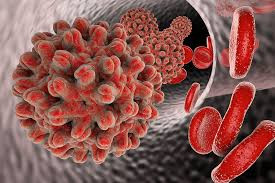
Hepatitis is inflammation of the liver which can be due to infection or injury. Globally at least 254 million people are living with chronic Hepatitis B and deaths from viral hepatitis now exceeds 1,2 million every year.
Types of hepatitis
Viral Hepatitis
This is the most common type of hepatitis and the viruses implicated include Hepatitis A, Hepatitis B, Hepatitis C while Hepatitis D and Hepatitis E are not common
Toxic Hepatitis
This is the type of Hepatitis one gets from exposure to chemicals. Alcohol-induced hepatitis is one example and this affects those that are good friends of alcohol.
Autoimmune Hepatitis
This is a rare type of Hepatitis that occurs when your immune system attacks liver cells by mistake
- Health talk: Power outages significantly impede health service delivery
- Health talk: Power outages significantly impede health service delivery
- Health talk: By Dr Johannes Marisa – Drug abuse is now too rampant
- Health talk: By Dr Johannes Marisa – Drug abuse is now too rampant
Keep Reading
Symptoms and signs
Hepatitis can be sneaky and patients may not notice changes in their bodies right away. For those that develop symptoms, the following may be noticed:
-Yellow eyes
-Dark urine
-Fatigue
Diarrhea
-Nausea or loss of appetite
-Pain on the right upper abdomen
-Fever
-Itchy skin
-Confusion
What causes Hepatitis?
Many things can cause Hepatitis, but the most common cause is exposure to viruses. It is thus important to look at how the viruses are spread.
Hepatitis B—This stubborn virus can spread through saliva, semen, blood or vaginal fluids. This, therefore, calls for immunisation of those that have risk of being exposed to blood or human fluids. Those who work in clinics and hospitals are at higher risk of contamination. According to World Health Organisation, at least 304 million people were living with Hepatitis B and C in 2022 while about 2.2 million people were newly infected by chronic Hepatitis B and C.
Hepatitis A—Spreads when a person ingests food or water contaminated with stool of infected person. That is the reason why we always advocate for water to be purified. It is prudent to protect our wells especially when there are high chances of contamination.
Hepatitis C—This spreads primarily through contact with blood, such as through sharing of needles, unsafe medical practices or through an infected mother to the fetus. In 2022, about 50 million people were affected by Hepatitis C alone in this world.
Hepatitis D—Only infects individuals who are already infected with Hepatitis B and it spreads via contact with blood and body fluids.
What other conditions can cause Hepatitis?
Any disease that affects your liver can cause Hepatitis. Conditions that can cause Hepatitis include:
-Cholestasis—This condition causes bile to back up in the liver, causing inflammation
-Cytomegalovirus
Epstein-Barr virus—This a highly contagious virus that often causes acute hepatitis and can lead to chronic hepatitis.
-Wilson Disease—A rare genetic condition that occurs when you have too much copper in your blood.
-Haemachromatosis—This is a rare genetic disease that causes your blood to absorb too much iron
What are the complications of Hepatitis?
Severe or persistent Hepatitis can lead to:
Cirrhosis—This is scarring in your liver from chronic hepatitis. This scarring happens when your liver tries to repair damage caused by the disease. Cirrhosis is severe liver disease
Liver cancer—Hepatocellular Carcinoma is the most common form of liver cancer. Cirrhosis that is caused by Hepatitis B and Hepatitis C accounts for about half of all cases of hepatocellular carcinoma.
Liver failure—This is when your liver stops working. Acute viral hepatitis that attacks your liver may cause liver failure. Cirrhosis from chronic hepatitis can cause liver failure
Portal hypertension—Scar tissue from cirrhosis can stop the movement of blood through a major vein in your liver.
Prevention and management
Lifestyle changes—Changes like avoiding alcohol, eating a variety of fruits and vegetables and getting adequate rest can help with the symptoms of Hepatitis A and acute Hepatitis B.
Vaccination—Make sure those who are at higher risk are vaccinated against some of the viruses. Zimbabwe has introduced child vaccinations for Hepatitis B at 6, 10 and 14 weeks of age. A birth dose of Hepatitis B vaccine is given to newborn babies within 24 hours of birth, which is crucial for preventing mother-to-child transmission. Catch-up vaccinations may be done for adults as well at any age.
Avoid contaminated water as you can have high risk of Hepatitis A virus. Make sure you take clean water.
Visit your clinician upon suspecting symptoms and signs and take the given advice to avoid complications. A lot of tests can be done which include blood for Liver Function Tests, Hepatitis Screen, Viral RNA/DNA tests. Imaging tests can include Ultrasound Scans, Computed Tomography, Magnetic Resonance Imaging. Liver Biopsy can be done as well.











